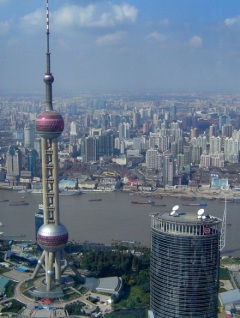 So, the daring plan to let Facebook into the Shanghai free trade zone (reported here, here and here) may also mean the embrace of foreign telcos.
So, the daring plan to let Facebook into the Shanghai free trade zone (reported here, here and here) may also mean the embrace of foreign telcos.
Hong Kong’s scmp.com reported Tuesday that the FTZ would allow access to previously-blocked websites such as Facebook, Twitter and YouTube.
The story adds that the FTZ, the first in mainland China, “would also welcome bids from foreign telecommunications companies for licences to provide internet services within the new special economic zone.”
Given the role of FTZ as a business zone, this surely means some attractive enterprise contracts with MNCs and local firms. The three domestic operators, China Telecom, China Mobile and China Unicom, have all accepted the arrival of foreign competition, the SCMP says.
The 29 sq km zone, located next to the Pudong business district and covering the airport and the Yangshan port, is intended to attract foreign investment and to trial some liberalised financial services. It is being hailed within China as akin to the establishment of special economic zones 30 years ago.
In that optimistic vein, we might see the FTZ, along with the opening of the MVNO market and the continuing talk of economic reform as signs of cracks in the wall around China telecoms.
This Reuters story on the campaign against monopoly abuses by economic reform outfit NDRC points out that:
The agency is also investigating the pricing practices of 60 local and foreign pharmaceutical firms. Autos, telecoms and banks might come next, regulators have suggested.
However, those with longish memories of Chinese telecoms may recall similar excitement accompanied AT&T’s joint venture with China Telecom and the Shanghai city government back in 2000. To quote People’s Daily back in the day:
Analysts said the deal will serve as a role model for foreign investors in the State-gripped market and other foreign firms are expected to follow the AT&T example when China enters the World Trade Organization.
That hasn’t happened. Shanghai Symphony is still the only foreign-invested telco JV in China, and a frustrating exercise for AT&T.
China’s WTO promise to open up the telecom services sector has been a hollow one, but no surprise. Direct control over telecoms is a sine qua non of party rule, guaranteeing direct control over the net and influence over the entire digital economy. China ranks 173rd out of 179 countries in the Reporters Without Borders Press Freedom Index and is on the NGO’s list of Enemies of the Internet.
None of this has changed. Rather, the current heavy internet crackdown tells us that, even if foreign operators are admitted to the FTZ, they will go no further.